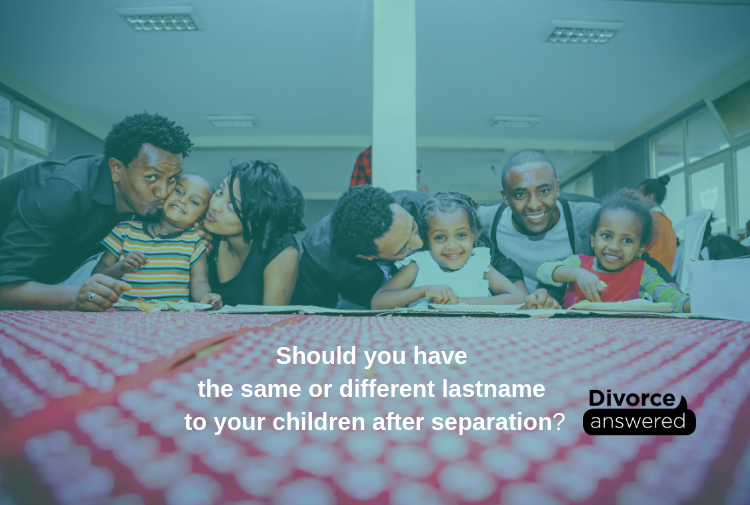
Rachael Scharrer, divorce and relationship expert and separation strategist, shares some pros and cons about chanigng your lastname after separation - is it better to have the same lastname as your children or to have a different lastname to your children?
A long-standing debate around changing your name has plagued many women for many decades. Often a woman is expected change her when she marries, a child is often expected to take on the father’s name and upon divorce, often there is debate over whether a woman is to keep her married lastname or return to her maiden name. We commonly see people using one lastname for work purposes and the other for personal privacy reasons.
Today, there are so many challenges when naming your child – which parent’s lastname should you use or should you double-barrel the lastname and which one goes first?
Delving a little deeper into the post-break-up lastname challenge there will be benefits and challenges that come with changing your lastname
TO KEEP THE SAME LASTNAME?
Retaining your married lastname means that you are likely to remain having the same lastname as your children. It tends to raise fewer questions when you travel or are needing to seek medical attention. This option also has less administrative challenges and you don’t need to change your passport, accounts and more. However, one other consideration is the ongoing association and emotional connection that you retain by keeping the same lastname as your ex-spouse.
TO TAKE A DIFFERENT (OR RETURN TO YOUR MAIDEN) LASTNAME?
Some people find that through their separation, finding themselves again comes with creating a new identity - changing their lastname from the married name to their maiden or other lastname is a pivotal point in that process. These people find the new lastname gives them the emotional freedom from their old identity and disassociation from their ex-spouse.
However, you can create some red-flags for people and organisations when you travel or try to enrol children in courses by having a different lastname. More often than not, some organisations (like school) will require both parents’ signatures when attending to a child or for an enrolment.
While having your own lastname may be good for you and you don’t mind being different to your children, your children may have an opinion on the matter. Some children may feel like they have a stronger bond with the parent changing their lastname and want to be the same as them. Other children may question why one parent has a different lastname to them and struggle to comprehend your motivation. In some situations (and often extreme ones) the child doesn’t want to be associated with the parent of the same lastname. And of course, there will be many children who will remain unaffected regardless of what you choose.
Remember that nothing is ever set in stone – children can change their names by choice at lawful age, they will potentially marry and change their name or you may re-marry and take on another lastname. It isn’t uncommon in blended families that there are three or more lastnames that the adults and children are using. It is wonderful that society today is more open to the different forms that families come in and are more open to multiple different lastnames.
The best thing that you can do is live your life in the best way possible, be the most amazing parent that you can be. In this quest, you can help your children to accept who they are and feel good about it – no matter what lastname you have or your child has.
If you are considering changing your child’s lastname, you might like to read this post